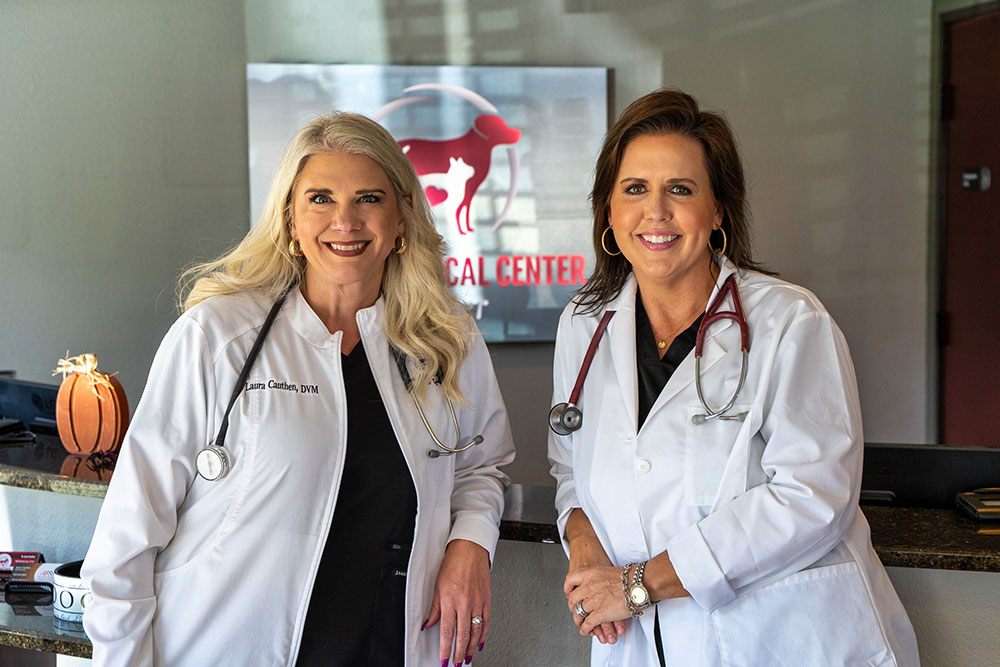Table of Contents
How many of us dreamed of becoming veterinarians as children? We would check the heartbeats of our plastic horses, bandage up our stuffed bears, and comfort our hurt kittens. We imagined it would be the best job in the world—I mean, how could you beat getting to snuggle cute animals all day long?
Fast forward several years (we won’t say how many), and you have achieved your dream and become a veterinarian. But, as you well know, it’s not all puppies and kittens and rainbows and sunshine. While it is rewarding work, it is also incredibly challenging.
Too often, our expectations are so different from reality. Let’s look at different areas of your job where your expectations may vary widely from the reality of running your own veterinary practice. And then, we’ll offer some tips for how you might close that gap!
Wait, they didn’t teach us that in vet school!
The Animal Body. Cell Biology and Genetics. Animal Health and Disease. These courses all sound familiar, right? You spent years studying and practicing veterinary medicine to become a DVM and a master of all things related to animal health. You understand symptoms, diagnose diseases, perform surgery, and bring much-needed healing.
But creating a business plan? Starting a new practice? Marketing your veterinary hospital? Handling payroll? Leading your team members? Negotiating your lease? Monitoring cash flow? And now—you also have to be active on social media?! You need an MBA and a Gen-Z marketing assistant just to keep up!
These are day-to-day realities you face as a vet practice owner. But nowhere in your veterinary school curriculum was there a crash course in advertising or real estate.
You may be lucky and find that you actually enjoy the challenge of running a business. Or maybe you’ve found the perfect partner who is extremely business savvy and takes care of your practice’s back end. But for too many highly trained veterinarians, the ins and outs of small business administration are exhausting—and confusing. And it amounts to another full-time job on top of caring for pet owners and treating their companion animals.
Let’s talk finances
First of all, you should give yourself a pat on the back. With very little business training, you have launched a new business and built a successful practice. You are an entrepreneur, and that is worth celebrating! You have already made it through one of the biggest financial challenges of veterinary practice ownership: just getting started.
But even when you have an established practice, it doesn’t mean you no longer face financial risk (hello, Covid!). Balancing the books and making a profit is a constant stressor for all small business owners, not just veterinarians. Do these questions sound familiar?
- How do you stock the right amount of inventory?
- How do you properly price your services?
- How do you pay your staff fair wages?
- How do you secure a loan and pay it back on time?
- How do you stay afloat with such high inflation?
- How do you retain quality staff—or find new ones—amid a labor shortage?
All of these questions come with very real financial implications. And with each decision, financial risk is involved. You’re running a start-up, after all. Figuring out how to answer each question for your clinic’s needs takes business know-how.
Handling the responsibility can be challenging
Have we stressed you out yet?
The goal of this article is not to send you into a panic attack. (Though maybe you should snuggle a puppy for a moment. That’s always a good idea!) Rather, our goal is to say: we see you. Your job is tough as nails—as so are you. We appreciate the hard work and countless hours you have poured into your practice.
It is emotionally, mentally, and physically taxing to run your own veterinary clinic. Most vets and their clients see each pet as part of the family and want to do everything they can to care for each animal. But a trip to the animal hospital is not cheap.
And while pet insurance is becoming more popular, many are still paying for your services out of pocket. It is incredibly tricky to navigate the medical needs of a beloved pet and the family’s financial constraints. You are thus handling emotionally fragile clients, possibly struggling to cover healthcare expenses, as you care for their sick pets.
Such sensitivity takes an emotional and mental toll—as does the stress of business operations. Add being on your feet most of the day, and you are understandably wiped.
Discover Your Practice's Value
Interested in discovering the value of your veterinary practice? A member of our partnership team can help you with that.
Work-life balance–what’s that?
Unsurprisingly, striking a balance between work and life is nearly impossible for a vet practice owner. Working long hours during the week and on the weekends comes with the territory of the medical profession and running your own veterinary business.
But even if you expected it, the reality of it—and the toll it takes on your relationships and life outside of work—can be hard to swallow.
Our top tips for owning a veterinary practice
Alright, we have discussed some of the most complex and challenging aspects of being a vet practice owner. Let’s now look at some tips, tricks, and ways to lighten your load.
Remember why you became a veterinarian in the first place
Remember the reason you started in the first place. So much of life is about our outlook and the narrative we tell ourselves every day. Remember that wide-eyed child checking the heartbeat of the plastic horse and bandaging his stuffed bear’s knee?
Think back on your dreams regularly. When the details get tough, zoom out and focus on the big picture. You are living out your dreams, and that is something to celebrate!
Similarly, think back to when you were first launching your practice. What inspired you to do so? What were you going after? What were your values then? Have they changed? Are you still aligned with them, or do you need to course correct?
Keeping your goals in mind grounds you in your values and inspires you to continue tackling the day-to-day challenges.
Celebrate the wins. Remember, it will all be worth it!
As you look back and reflect, genuinely celebrate your victories. Celebrate with your team members. Celebrate with your family. Take time to soak up your successes. Too often, people have a tendency to fixate on stresses and failures, so make sure to celebrate your wins as a veterinary professional just as much (if not more!).
Assess the state of your practice.
Set aside some dedicated time to assess your business’s current state. Here are a couple of areas you might think through.
Do you need to adjust the cost of your services? Inflation, supply and labor shortages, and increased demand for pet services have caused the industry to shift significantly over the past few years. Suppose you find the books hard to balance and your profits decreasing. In that case, it might be time to carefully and thoughtfully consider adjusting your prices.
Do you need to invest in updating your practice’s technology? Having smooth systems for payroll, insurance processing, scheduling visits, etc., etc., etc. takes a huge weight off you and your staff. Sometimes systems are just old and clunky and need to be revamped. Having outdated systems in place can also make recruitment an even bigger challenge.
Is it time to make a more significant business model change? There are a myriad of opportunities to receive business support. While AmeriVet is just one option, we think it’s the best (but, to be fair, we’re biased).
With Amerivet as a partner, you will receive business support tailored to your specific needs. This frees you up to develop and maintain your clinic’s culture and ultimately do what you do best: care for animals.
Our biggest piece of advice: Seek help when you need it
While minor adjustments can go a long way to alleviating stress, there are times when it is vital to seek professional help. If you find yourself struggling with depression or anxiety (like so many of us these days), do not hesitate to reach out. There is a path forward and there is help available.
Together with mental and physical support, a committed veterinary partner will make a huge difference. A true partner will help close that gap between what you expected life to be like as a veterinarian and what it really is. And while it might take time and energy to make those changes, the result is worth it. You got into the industry to take care of puppies and kittens—and it’s high time the majority of your day was spent doing just that.





